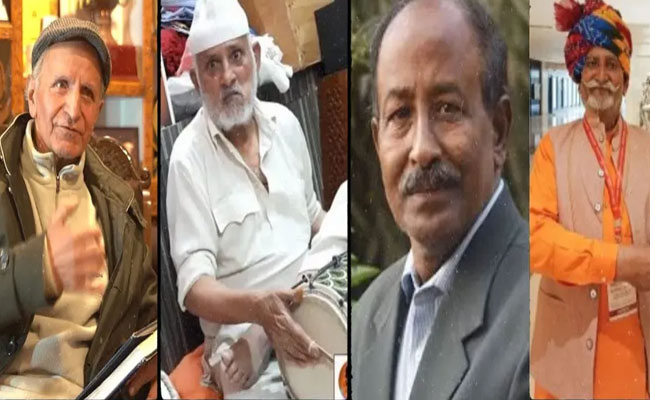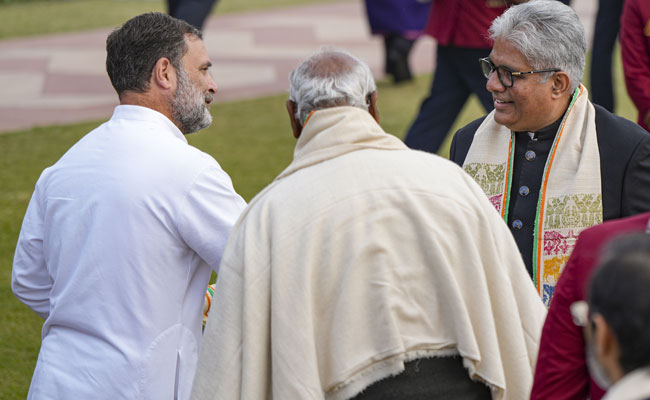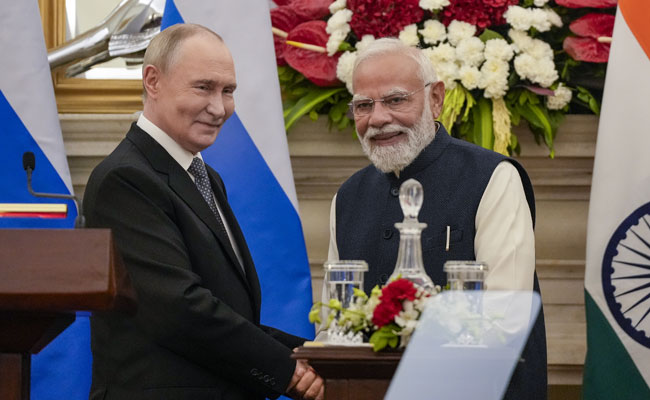New Delhi, Nov 2: The government on Saturday released the maps of newly created Union Territories (UTs) of Jammu and Kashmir, and Ladakh and the map of India depicting these UTs.
In a statement, the Ministry of Home Affairs said the UT of Ladakh consists of two districts of Kargil and Leh while the rest of the erstwhile state of Jammu and Kashmir is in the UT of Jammu and Kashmir.
In 1947, the erstwhile state of Jammu and Kashmir had the following 14 districts - Kathua, Jammu, Udhampur, Reasi, Anantnag, Baramulla, Poonch, Mirpur, Muzaffarabad, Leh and Ladakh, Gilgit, Gilgit Wazarat, Chilhas and Tribal Territory.
By 2019, the government of erstwhile state of Jammu and Kashmir had reorganised the areas of these 14 districts into 28 districts.
The names of the new districts were - Kupwara, Bandipur, Ganderbal, Srinagar, Budgam, Pulwama, Shupian, Kulgam, Rajouri, Ramban, Doda, Kishtivar, Samba and Kargil.
Out of these, Kargil district was carved out from the area of ??Leh and Ladakh district.
The Leh district of the new UT of Ladakh has been defined in the Jammu and Kashmir Reorganisation (Removal of Difficulties) Second Order, 2019, issued by the President of India, to include the areas of the districts of Gilgit, Gilgit Wazarat, Chilhas and Tribal Territory of 1947, in addition to the remaining areas of Leh and Ladakh districts of 1947, after carving out the Kargil District.
The maps prepared by Survey General of India depicting the new UTs of Jammu and Kashmir, and Ladakh, as created on October 31, 2019, along with the map of India, are released, the statement said.
On the recommendation of Parliament, the President effectively dismantled Article 370 of the Indian Constitution and gave assent to the Jammu and Kashmir Reorganisation Act, 2019.
Under the leadership of Prime Minister Narendra Modi and supervision of Union Home Minister Amit Shah, the erstwhile state of Jammu and Kashmir has been reorganised as the new Union Territory of Jammu and Kashmir and the new Union Territory of Ladakh on October 31, 2019, the statement said.
Let the Truth be known. If you read VB and like VB, please be a VB Supporter and Help us deliver the Truth to one and all.
Vadodara (PTI): Nat Sciver-Brunt (100 not out) hit the first-ever century of Women’s Premier League history in its fourth edition as dominant Mumbai Indians beat Royal Challengers Bengaluru by 15 runs, despite Richa Ghosh's whirlwind 90, here on Monday.
In a must-win game to remain in contention for play-offs, defending champions Mumbai hit their strides to produce a near-perfect performance with the bat, piling up 199 for four.
But, despite making early inroads to leave RCB reeling at 35 for 5 inside the powerplay, MI bowlers appeared clueless against Richa who hammered 10 fours and six sixes to make 90 off 50 balls in her team's 184 for 9.
RCB collected 43 runs in the last two overs, with India all-rounder Amanjot Kaur being smacked for three sixes in a row by Richa.
Hayley Matthews (56 and 3/10), who had earlier struck a vital half-century, jolted MI twice as she accounted for skipper Smriti Mandhana (6) and Georgia Voll (9) in the fourth over, and for Radha Yadav (0) in her next.
Shabnim Ismail (2/25), who had struck first to remove Grace Harris (15), cleaned up Gautami Naik (1) for her second wicket while also took a sharp catch in the deep to help Matthews dismiss Radha.
With the win, Mumbai jumped to second spot with six points from seven matches. Delhi Capitals and Gujarat Giants are also on six points from six matches each but Mumbai have better Net Run Rate.
Earlier, England's Sciver-Brunt (100 not out) struck the first-ever century in WPL to fire Mumbai Indians to a formidable 199for 4.
Sciver-Brunt’s 57-ball unbeaten ton and Matthews’ 56 laid the foundation for a big total for Mumbai Indians.
Matthews and Sciver-Brunt put on 131 runs off 73 balls for the second wicket in a whirlwind partnership in which they not only rotated strike well but unleashed a flurry of boundaries.
Matthews struck nine fours to make 56 off 39 balls while Sciver-Brunt hammered 16 fours and one six for her 100 not out.
The pair came together early in the third over when Lauren Bell (2/21) trapped Sajeevan Sajana (7) in front of the wickets.
Brief Scores:
Mumbai Indians: 199 for 4 in 20 overs (Hayley Matthews 56, Nat Sciver-Brunt 100 not out; Lauren Bell 2/21) beat Royal Challengers Bengaluru 184/9 in 20 overs (Richa Ghosh 90 not out; Shabnim Ismail 2/25, Hayley Matthews 3/10) by 15 runs.





